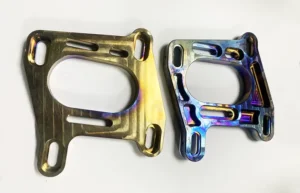
Can a CNC mill go on wheels?
Can a CNC Mill Go on Wheels?
CNC mills are powerful machines that play a crucial role in the manufacturing industry. These machines are typically large and heavy, making them difficult to move around a shop floor.
However, if you’re looking to increase the flexibility and mobility of your CNC mill, you may be wondering if it’s possible to put it on wheels.
Factors to Consider
Before you decide to put your CNC mill on wheels, there are several factors you’ll need to consider. Here are some key points to keep in mind:
Weight
CNC mills are heavy machines, often weighing thousands of pounds. It’s essential to ensure that the wheels you choose can support the weight of the machine. Look for heavy-duty industrial wheels that can handle the load without bending or breaking.
Stability
One of the primary concerns when putting a CNC mill on wheels is stability. The machine must remain level and steady during operation to maintain accuracy and prevent damage. Make sure the wheels you select are equipped with locking mechanisms to secure the machine in place.
Shock Absorption
CNC mills are precision machines that are sensitive to vibrations and shocks. When choosing wheels for your CNC mill, look for options that provide adequate shock absorption to minimize the impact of movement on the machine’s performance.
Floor Surface
The type of floor surface in your shop will also affect the mobility of your CNC mill on wheels. Make sure the wheels you choose are suitable for the flooring material and won’t cause damage or leave marks behind.
Challenges and Solutions
Putting a CNC mill on wheels presents several challenges that must be addressed to ensure the machine’s safety and performance. Here are some common challenges you may encounter and potential solutions:
Repositioning
One of the main reasons for putting a CNC mill on wheels is to increase its mobility and ease of repositioning. However, moving a heavy machine like a CNC mill can be challenging. Consider using a hydraulic lift table or gantry crane to lift and move the machine with minimal effort.
Workpiece Stability
When a CNC mill is in motion, it’s crucial to ensure the workpiece remains stable and secure to prevent errors and damage. Use clamps, vises, or fixtures to hold the workpiece in place during machining operations, even when the machine is on wheels.
Power and Connectivity
Moving a CNC mill on wheels may require adjustments to power and connectivity arrangements. Ensure that the machine can easily access power sources and data connections without interference or safety risks. Consider using extension cords or retractable cables to accommodate movement.
Operator Safety
Operators working with a CNC mill on wheels must be trained in safe handling practices to prevent accidents and injuries. Provide proper training on how to maneuver the machine, secure it in place, and operate it safely while it’s mobile.
Benefits of Mobility
Despite the challenges involved, putting a CNC mill on wheels can offer several benefits for your manufacturing operation:
Flexibility
With a CNC mill on wheels, you can easily reposition the machine to accommodate changing production demands or shop floor layouts. This flexibility can improve efficiency and workflow in your manufacturing process.
Space Saving
By putting your CNC mill on wheels, you can free up valuable floor space in your shop when the machine is not in use. This extra space can be used for other equipment, storage, or workspace, optimizing the layout of your manufacturing facility.
Cost Savings
Instead of investing in multiple CNC mills for different production areas, you can move a single machine on wheels to where it’s needed most. This can help you save on equipment costs and minimize downtime associated with reconfiguration.
Conclusion
While putting a CNC mill on wheels may present challenges, the benefits of increased mobility and flexibility can make it a worthwhile investment for your manufacturing operation.
By carefully considering factors such as weight, stability, shock absorption, and floor surface, you can ensure a successful transition to a mobile CNC milling setup.
With proper planning and precautions, you can enjoy the convenience and efficiency of having a CNC mill on wheels in your shop.




1 thought on “Can a CNC mill go on wheels?”
Feels like this post was written for me.
Comments are closed.